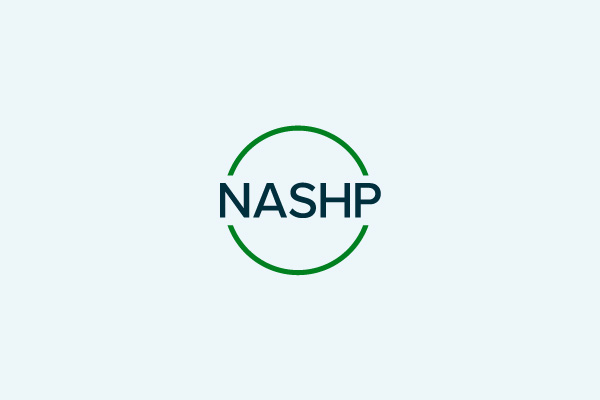This information was collected through a combination of state surveys and NASHP staff research. It offers a snapshot of how the state is defining, training, certifying, and paying for the CHW workforce — as well as how the state is developing cross-agency and state-to-local strategies to improve community health in partnership with CHWs.
This is a dynamic policy space, and states are continuing to develop new approaches. We will continue to make periodic updates to this page. Learn more about state CHW policies across the U.S.
State CHW Definition
Information is unavailable.
Certification and Training
The Georgia Department of Public Health offers a 43-hour community-based core competency training for CHWs in Georgia.
To be eligible for Medicaid reimbursement, Resource Mothers, who are CHWs who specialize in postpartum services and supports, are required to successfully complete a Resource Mother training module and participate in ongoing in-service training as provided.
Medicaid Reimbursement
Georgia reimburses CHW services for limited populations through these authorities for certain target populations:
- A section 1115 demonstration, implemented through Medicaid MCOs, for the use of Resource Mothers, which is a population-specialized CHW model. This benefit is funded through a capitation model through Medicaid managed care as one component of the postpartum service array. Care management organizations using Resource Mother outreach are required to provide supervision by a nurse case manager or similarly qualified program staff member.
- The state is waiting on approval from the Centers for Medicaid and Medicare Services on a proposal that would recognize CHWs as practitioners under the Medicaid Rehabilitation Option specific to implementation of the Certified Community Behavioral Health Clinic service type. This service will aim to target mental health and addiction needs for members of all ages.
Other Funding or Financing Mechanisms
The Georgia Department of Health, Chronic Disease Prevention Section, is leveraging funding from the CDC Community Health Workers for COVID Response and Resilient Communities (CCR) initiative to increase training and resources for CHWs. Emory and Morehouse School of Medicine are leveraging HRSA-22-124 funding for community health worker training programs.
Key Partnerships
Georgia CHW Advisory Board helps align efforts statewide to define, train, and certify CHWs and to provide recognition to this growing group of professionals.
Georgia CHW Advocacy Coalition supports the work of the Advisory Board while informing and promoting the role of CHWs and advocating for CHWs to be recognized as certified health professionals in the state.
Georgia CHW Network provides opportunities for CHWs to collaborate through meetings and learning collaboratives that support peer learning exchanges and partnerships.
State CHW Legislation
Information is unavailable.
State Resources
State Overviews
ACO – Accountable care organization
AHEC – Area Health Education Centers
APHA – American Public Health Association
APM – Alternative payment model
CBO – Community-based organization
CDC – Centers for Disease Control and Prevention
CDC CCR Funding – Community Health Workers for COVID Response and Resilient Communities Funding
CHR – Community health representative
CHW – Community health worker
CPT Codes – Current Procedural Terminology Codes
C3 Project – CHW Core Competency Project
FFS – Fee for services
HCSPCS Codes – Healthcare Common Procedure Coding System Codes
HRSA – Health Resources & Services Administration
MCO – Managed care organization
NACHW – National Association of Community Health Workers
SDOH – Social determinants of health
VBP – Value-based payment
State CHW Definition: This category indicates where states have a formal definition of a CHW. In some cases, where there is not a definition in statute, this category may draw information from provider manuals and state websites or reports.
Certification and Training: This category includes information about how CHWs are trained in the state, which entities provide training, whether or not the state runs or recognizes a CHW certification program, and information about the entities that administer existing certification programs.
Medicaid Reimbursement: This category includes information about state Medicaid strategies that provide enrollees access to CHW services. Entries indicate whether state Medicaid programs currently reimburse for CHW services or incorporate CHWs into alternative payment models under the authority of a state plan amendment (SPA), or where states have earmarked funds to support CHW services under the authority of an 1115 demonstration waiver. It also indicates where CHW services might be supported through managed care approaches (e.g., where MCOs are paying for CHW services using administrative dollars or where states are using managed care contracts to incentivize or require MCOs to cover CHW services).
Other Funding or Financing Mechanisms: This category includes information about other state funding or financing approaches that cover CHW services or CHW positions. It includes information about federal grant dollars for which the state is the grantee.
Key Partnerships: This category offers information about key partners outside state government, including state CHW associations and CHW training entities, and highlights formal cross-agency partnerships within the state that support alignment of funding and resources for the CHW workforce.
State CHW Legislation: This category highlights any state legislation relevant to the CHW workforce. This might include statutory language directing agencies to develop a Medicaid reimbursement approach, laws that established state CHW certification, or other relevant statutes.
State Resources: This category offers links to any key reports or resources that states elected to highlight as critical to CHW policy and partnership.



